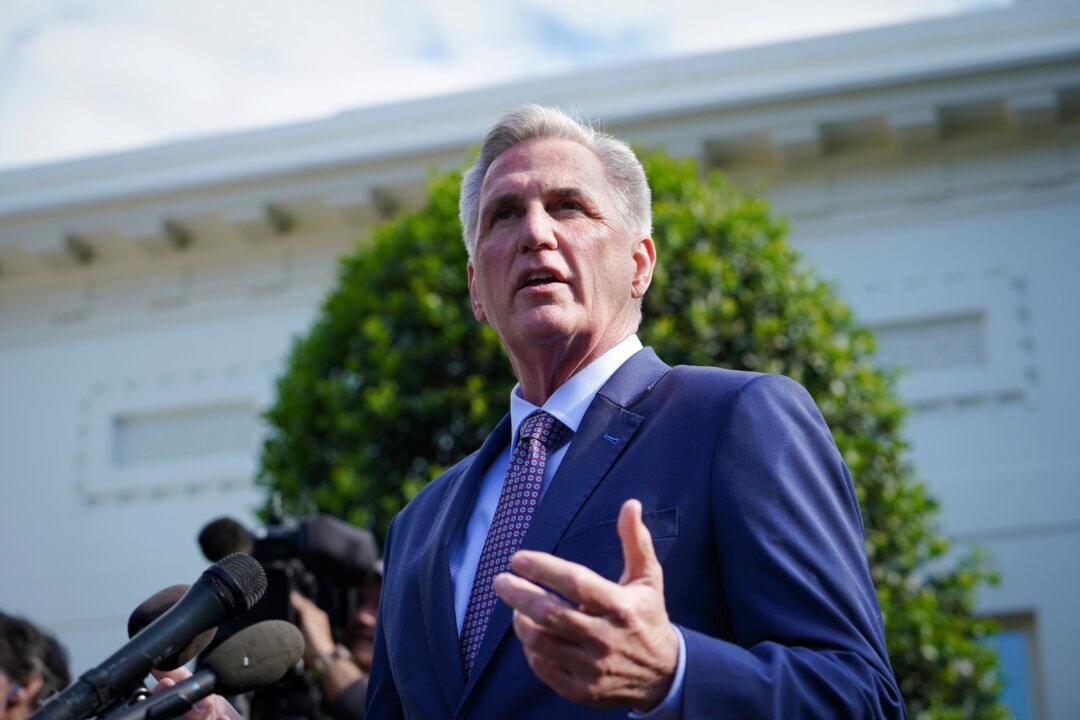House Speaker Kevin McCarthy (R-Calif.) on May 9 criticized President Joe Biden’s suggestion that he could invoke the 14th Amendment as a way to override the debt ceiling and avert a possible default, with the two politicians fresh off a meeting with no breakthrough on the debt limit standoff.
Biden confirmed on May 9 that he’s looking at the possibility of using the 14th Amendment as a last-ditch option to work around the $31.4 trillion debt limit, in the event that negotiations on lifting the borrowing cap fall through and the country faces the prospect of defaulting on its debt obligations.





